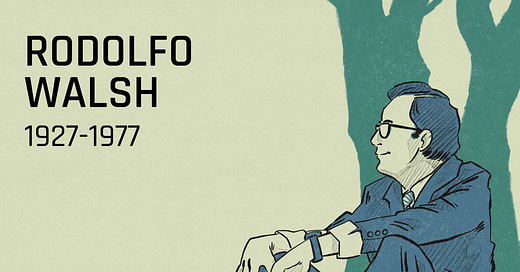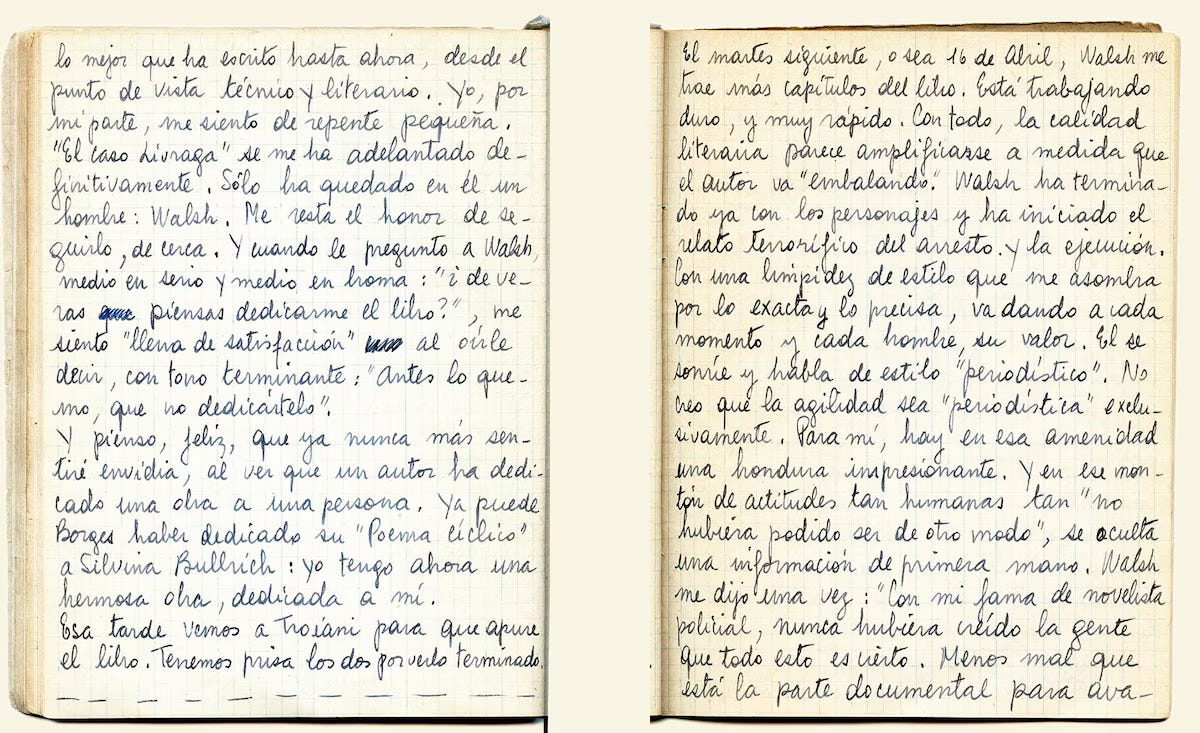On 20 December 1956, the journalist Rodolfo Walsh (1927-1977) barged into the home of his friend Enriqueta Muñiz (1934-2013). Muñiz, like Walsh, was trying to be a journalist in a world of military power and censorship.
But on this day, Walsh came in and said that he had found ‘the dog bitten by a man’. What he meant is that by chance, Walsh had discovered a man who had survived a massacre that took place earlier that year by the authorities in the working-class area of Buenos Aires called Florida. Muñiz decided to help Walsh with the research. They found witnesses, interviewed them, and built the case against the military government. Muñiz kept a diary of the work that they did, which was later published in parts by the journalist Diego Igal:
Walsh wrote up the stories and then the book that became Operación Masacre (Operation Massacre, 1957), one of the most important journalistic books of our time. The reports shocked sensitive people in Argentina. It earned Walsh the hatred of the military.
The latest newsletter from Tricontinental: Institute for Social Research is on Walsh. This is how we describe his death:
Forty-eight years ago, on 25 March 1977, fifty-year-old Rodolfo Walsh died in the Navy School of Mechanics (ESMA), where he had been taken after being shot repeatedly by a squad of soldiers at the intersection of San Juan and Entre Ríos avenues in Buenos Aires. Walsh had just posted several copies of his letter to the junta when they found and shot him. When one of the shooters, Ernesto Weber, was brought to trial decades later he said, ‘We took Walsh down. The son of a bitch took cover behind a tree and defended himself with a .22. We shot at him with bullets and he didn’t go down, the son of a bitch’.
We honour Walsh, one of my heroes. Please read the newsletter and subscribe to receive future newsletters at the website of Tricontinental: Institute for Social Research.
Muñiz went on to have a successful career as a writer, publishing a number of well-regarded books and winning a number of prizes (including the Premios Konex on many occasions).







Thank you for bringing us these vital stories of important and admirable people, heroes, whom the everyday person would normally only know about by rare chance.